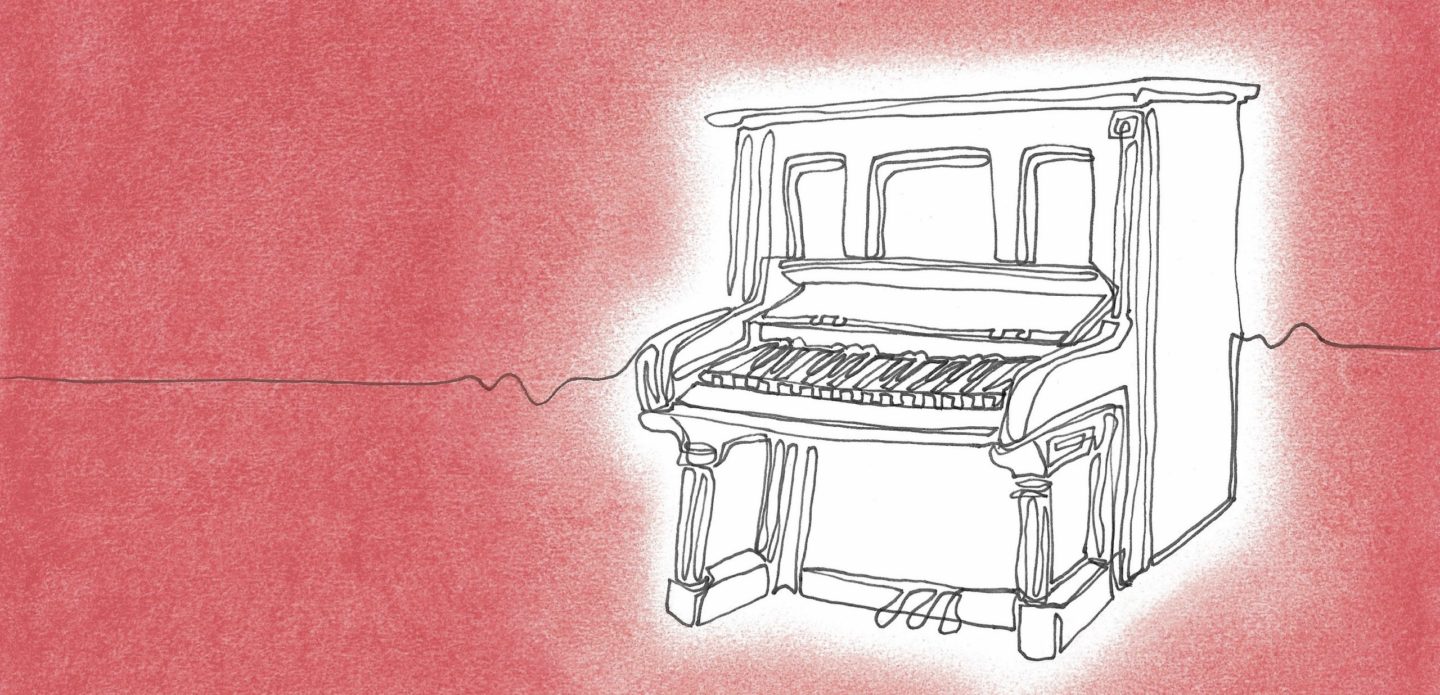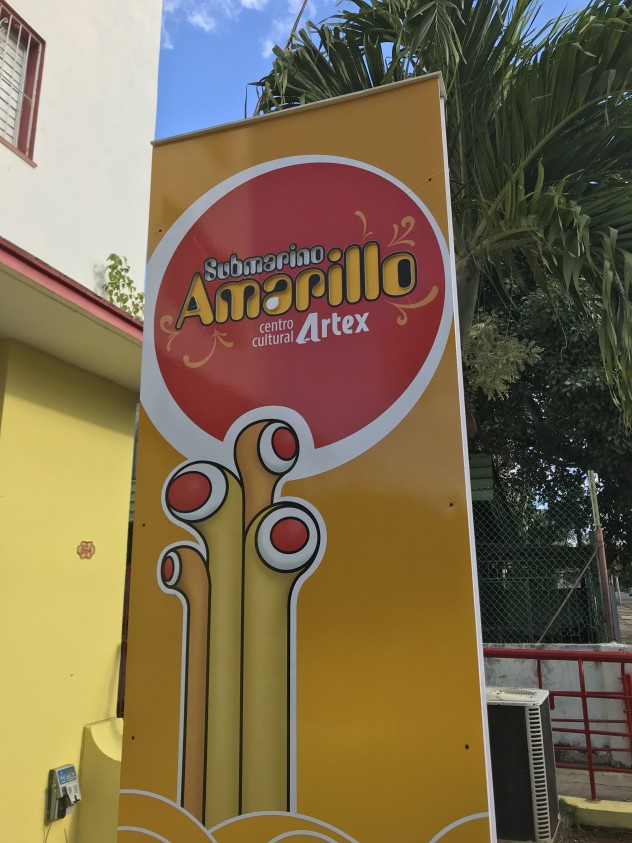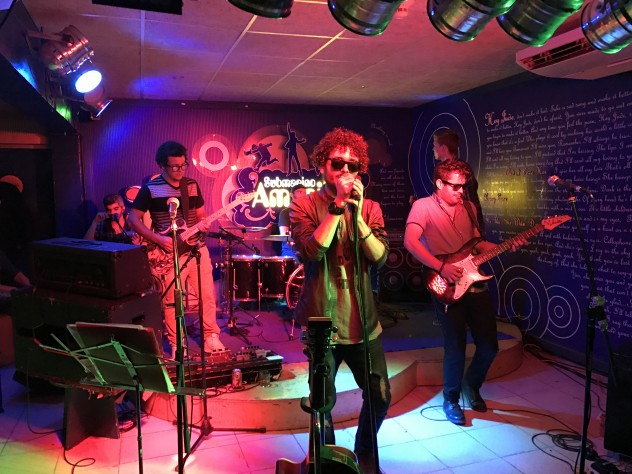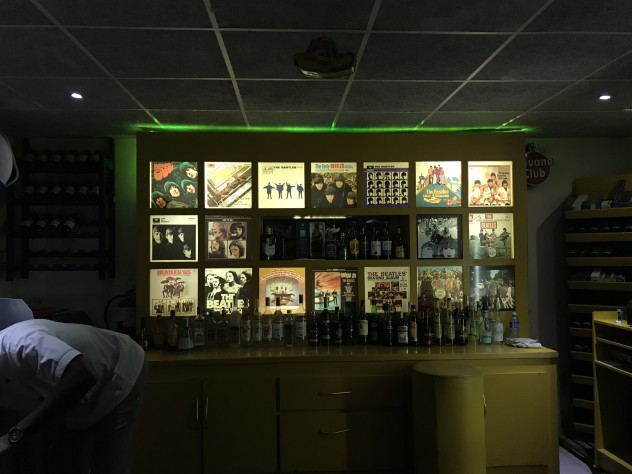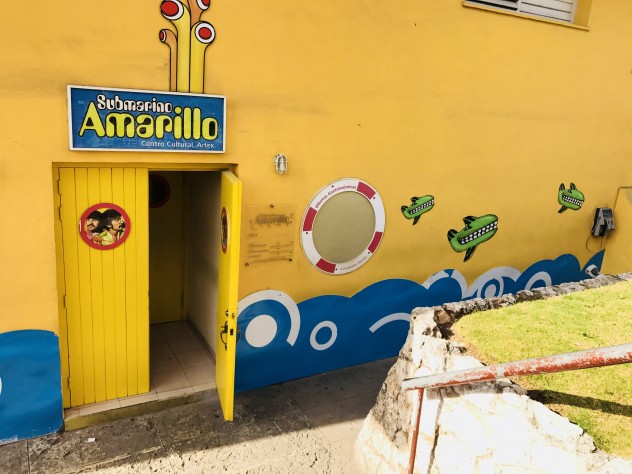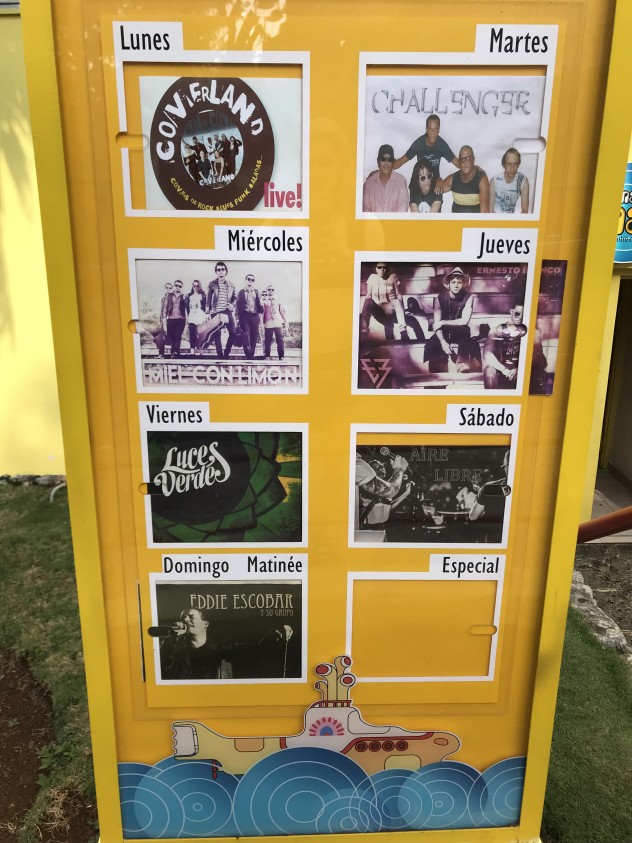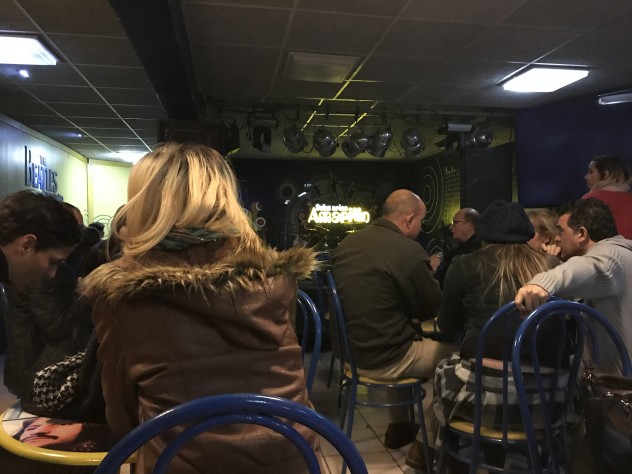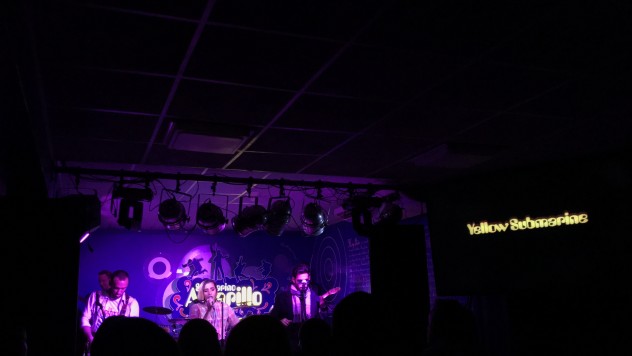Submarino Amarillo, Round 2
One day, while I was making my way to various other leads, I passed by Submarino again. This time, the park caretaker and Imagine shop owner flagged me down, saying that when I returned to Submarino, I must talk to the director. He, they explained, knows all about the subject and is very invested in the Beatles’ history in Cuba. Intrigued, I returned at 2:00 for the matinee, and explained to a waiter what my project was. He too said that I needed to speak to the director, but that he wouldn’t be around until around 5:00. Grateful for the help, I decided to rest and return later.
At this point, it’s worth mentioning why I haven’t been using names of these interviewees. It’s not that it is unethical for me to do so; at the very least, using first names would do no harm. But it’s about the culture in Cuba. At Submarino, I considered speaking with members of Aire Libre, but thought better of it. Last year, I did an independent project on Cuban music, and I had inquired at Submarino if I could talk to the musicians. The bartenders seemed very hesitant and suggested I talk to their agents. In addition, Angelita was certain that if I tried to look up anything about rock and roll/Beatles censorship, I’d find nothing on Cuban internet. And I believe her. The reality of living in Cuba is that there is still suspicion, fear, and anxiety associated with anything that contradicts the government or the Revolution. For this reason, I thought it best to not inquire for personal information, out of respect for my interviewees.
At 5:00 I promptly returned to Submarino and was greeted by the same waiter. I should have known better that being prompt is worth nothing in Cuba. I waited for over an hour before the director showed up – he then had to introduce the cover band of the night, which took an additional 15 minutes. He wished everyone a Happy New Year, promised “new themes” in the repertoire of the cover bands, and claimed that the matinee crowd was always special. I really didn’t mind the waiting. I love it there.
As the band blasted “Love is All You Need,” we chatted outside the bar in the mild Havana air. I was a bit intimidated after being told by several people that he was THE person to talk to, so I sputtered, “So, in the 60s, the Beatles’ music was banned—” “That’s just a legend,” he replied, in an agreeable tone. I was a little confused, as he proceeded to then go into a history lesson that I had heard time and time again. That the United States had been aggressive towards the Japanese during WWII, establishing concentration camps, and later became aggressive with Cuba as soon as the Revolution succeeded. “It was the era of the Bay of Pigs, it was the era in which Che and Fidel fled to the mountains.” I didn’t understand where he was going. Eventually, he came to a statement that many in Castellanos’ book made: the Beatles sang in English, and thus they were considered Yankees. Enemies of the state. Nevertheless, he said that at the same time, there was a new understanding, appreciation, and wider conception of culture and art in Cuba. Fewer youth were graduating from university, but it didn’t matter. He himself never graduated but began working for the radio in 1966, and he said he was able to play classic rock songs that would eventually reach television through music videos. Since then, he said, the love of rock music has just grown. In the 90s, after John Lennon was murdered, there were many concerts held to commemorate him with Beatles music. By December 8th, 2000 (20th anniversary of Lennon’s death), when the statue was inaugurated by Fidel, there was a sense of “relaxation.” In general, he thinks that early on, the Cuban public couldn’t fully understand the emotion of the Beatles. Yes, they could listen to their music, but they couldn’t see them perform it live. He claimed many Cubans left Cuba out of curiosity to see rock and roll in person. Perhaps this was…one of many reasons.
He continued to say that rock is no longer perceived as a “peligro,” or danger, in Cuba. However, it at times seemed to be aggressive as a live show. The trouble nowadays is that though Cubans like this live show, it’s difficult to make a live show happen. Many rock bands want to play in Cuba, but where? And who will pay for it? He thinks there simply needs to be a large agency in Cuba dedicated to making these shows a reality, because “la gente los come” – the people would eat them up.
I asked him how Submarino was made possible, and he said that in the last decade, there came a project to “personalize” night clubs in Havana. Parque John Lennon was right across the street, so it only seemed fitting to have a Beatles club adjacent to it. He has been directing the club for 7 years, since its creation. He was chosen for his eye for details – not just the music, but the food, ambiance, etc. Clearly well-known in the industry (people were greeting and taking pictures with him throughout the night), I wanted to know what his favorite Beatles’ song was. I either missed his answer or never got it, but he did go into an elaborate recollection of recently listening to Rubber Soul, and how it was a transition, evolution, from the Beatles’ days of – as he put it – “hey, baby” to Sergeant Pepper’s complexity. They changed their music chemically, harmonically, he noted. All of them were geniuses, and Ringo, even though he wasn’t as talented, was “el punto de equilibrio,” or “balancing point” for the band.
They continue to be a point of reference that demonstrates to me that art has to be exemplary.”
“Why are the Beatles important in Cuba?” I asked. He replied, “They continue to be a point of reference that demonstrates to me that art has to be exemplary.” Music, he argued, isn’t about marketing – “I HATE marketing” – but it’s about doing something that you want to do. Letting out your emotions. And that’s what the 18 cover bands that play at Submarino do. In this way, the Beatles have made “una línea muy profunda, diversa, y universal” – a profound, diverse, and universal path – for musicians to follow.
The youth listen to the Beatles to search out the mystery of the music that continues to live with their parents. So they can be part of its history.”
“And why do both the youth and the older Cubans still enjoy the Beatles?” Today, “Music does not serve the people. There’s so much empty music. It’s all to dance. You’ve heard of reggaetón? Yes, reggaetón is fun, but it’s rude, aggressive,” he replied. For these reasons, the older Cubans listen to the Beatles out of appreciation for music of high quality that can be shared. The youth, “To search out the mystery of the music that continues to live with their parents. So they can be part of its history.”
With that, I left extremely content.
